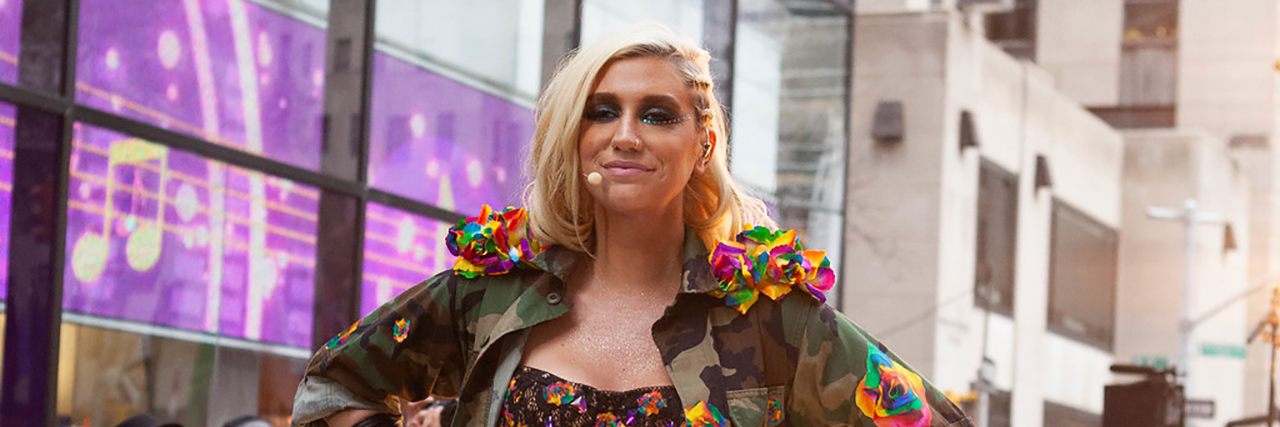Kesha Talks About a Common Frustration of Hospitalization in New 'Rainbow' Documentary
Editor's Note
If you live with an eating disorder, the following post could be potentially triggering. You can contact the Crisis Text Line by texting “NEDA” to 741741.
In a new documentary about her 2017 comeback album, “Rainbow,” Kesha shares the process behind her latest music. In the film, she talks about being in recovery for an eating disorder and opens up about a common frustration of hospitalization — what she wasn’t allowed to bring with her.
In a preview clip, the “Praying” singer shares that while in a rehab facility, she wasn’t allowed to have a keyboard. She was told she couldn’t work, and that included access to a keyboard. She says in the film:
I was in rehab for an eating disorder that had gotten wildly out of control. They said I wasn’t allowed to work. And since I’m a musician they said I couldn’t even have a keyboard. But I pleaded, “This isn’t work.” Finally they agreed to give me a keyboard for one hour a day.
Earlier this year she expanded on the experience in an interview with Rolling Stone. She used a battery-operated keyboard during her three-month stay because one with a cord would break the treatment center’s rules. Since she needed to use headphones, she was only allowed an hour of keyboard time a day under strict supervision.
Kesha’s experience of not having access to a keyboard, arguably an important protective factor in her recovery, highlights a common issue for those who are hospitalized. While there are some standard restricted items such as strings and electronics, every hospital has different rules about what patients can and cannot bring with them.
Del Amo Hospital in Los Angeles, for example, doesn’t allow stuffed animals, musical instruments or flowers. At Houston Behavioral Healthcare Hospital, stuffed animals, hoodie sweatshirts and clothing with “offensive messaging” are prohibited. Walden Psychiatric Care‘s inpatient program in Massachusetts doesn’t allow knitting needles/crochet hooks/yarn, musical instruments or make-up.
At many in-patient programs, restrictions prohibit patients from having items that can provide comfort. Mighty community member Morgan M. shared in the piece, 13 Gift Ideas for a Friend Who’s in the Psychiatric Hospital, that a stuffed animal — which is not allowed at many treatment facilities — was important to her during a hospitalization:
A stuffed animal! (That they can actually have, check the rules.) Great as a grounding tool and makes a better pillow than those [they] give you. Also, you can keep it forever to remind you of two things. [One,] when you were at your lowest, someone still cared. And [two], you won the battle for this time, you can do it again!
Kesha was able to advocate for her needs during treatment, though this isn’t always possible for many who enter in-patient care. She says this was a turning point in her recovery journey: “I knew I had to change and learn to take care of and love myself,” she shares in the video clip. “‘Rainbow’ was the beginning.”
To see the full story of Kesha’s recovery, watch “Rainbow — The Film” on Apple Music, available everywhere Friday.
Image via Creative Commons/Anthony Quintano

